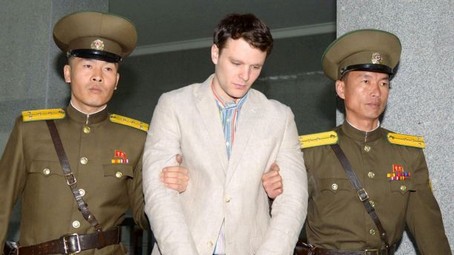N. Korean prisoners look like ‘walking skeletons’ in Kim Jong Un’s labor camps
The report highlighted details gathered from six prison camps, some of which housed as many as 50,000 prisoners, mostly detained for political offenses. The United Nations Commission of Inquiry on Human Rights prepared the information published Friday detailing a prisoners’ daily struggle to even obtain a decent meal at the camps.
“Induced starvation is common among prisoners, who are driven to catch and eat rodents, frogs and snakes,” the report said.
A former camp guard, identified as Ahn Myong-chol, said inmates appeared like “walking skeletons, ‘dwarfs,’ and ‘cripples’ in rags,” and about 1,500 to 2,000 of them would die of malnutrition yearly. Food is scarce in the rogue nation, with an estimated 70 percent of the population — about 18 million people — going hungry, the United Nations reported.
“The number of deaths from beating prisoners was so high that at one point, the guards were encouraged to be less violent.”
Jun Heo, who was just a teenager when he was sent to one of the camps, previously told Fox News he would be beaten black and blue and tortured constantly. Cries and screams were a constant backdrop and prisoners were forced to perform hard labor for 14 hours straight.
Ahn echoed the reports of brutal beatings, saying he and other guards were encouraged to view the prisoners as sub-human, and strike them repeatedly as punishment, according to the report.
“The number of deaths from beating prisoners was so high that at one point, the guards were encouraged to be less violent,” the report stated.
Prisoners were assigned to intensive labor such as coal mining and cement making, and they often died due to work-related accidents. An unconfirmed report also indicated a nuclear test site was being constructed in a prison, the State Department said.
North Korea has been known to imprison its citizens for so-called crimes that include speaking badly about the regime and its leader, Kim Jong Un, distributing South Korean media or stealing rice or livestock. A report released by the The Transnational Justice Working Group in Seoul in July also uncovered public executions carried out on “criminals” in schoolyards and fish markets in an attempt to instill an “atmosphere of fear” among the citizens.
The brutalities of the regime’s prison camps made international news earlier this year when American student Otto Warmbier, who was held by North Korea for more than a year, returned to the U.S. in a coma. He was sentenced to 15 years of hard labor for allegedly stealing a political poster from a hotel in Pyongyang.
Warmbier died after suffering severe brain damage. North Korea denied cruelly treating or torturing Warmbier during his time in its prisons, claiming Pyongyang was the “biggest victim” in the incident.






